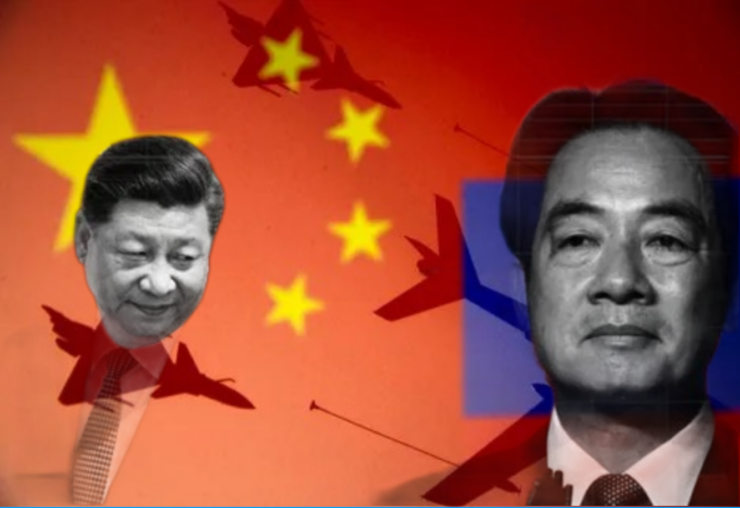
The election of a candidate from the ruling Democratic Progressive Party (DPP), which supports Taipei’s independence and closer ties with the United States, may result in increased tensions with Beijing
The situation regarding the conflict around Taiwan is becoming increasingly complex. On January 13 of this year, international experts were making preliminary forecasts for the general elections on the island and possible developments in relations between the shores of the Taiwan Strait. Despite the various scenarios, experts agree that the victory of the pro-American Democratic Progressive Party (DPP) or one of the two opposition parties proposing to strengthen relations with China would significantly impact both US-China relations and the entire Asia-Pacific region, including the prospect of armed conflict.
Last Saturday, Taiwanese voted not only for the next president and vice-president of the so-called Republic of China, who are directly elected for four-year terms and can serve no more than two consecutive terms, but also for 113 members of the island’s unicameral parliament, the Legislative Yuan. Tsai Ing-wen, Taiwan’s incumbent President, is finishing her second term. For this reason, her 64-year-old Vice President, Lai Ching-te, who takes an even tougher stance on Taipei’s independence, ran for the DPP. The ruling party’s vice-presidential candidate was Hsiao Bi-khim, the head of Taiwan’s US mission, who is known for her tough rhetoric against Beijing.
After the votes were counted, it was announced that Lai Ching-te, the pro-American candidate, had won the presidential election in Taiwan. This was the third victory in a row for the representatives of the separatist DPP. According to several experts, the island is on the brink of an escalation of confrontation with Beijing.
Recall that in 2017-2019, Lai Ching-te served as the Prime Minister of Taiwan and presented himself as an advocate for the island’s independence. The politician stated that Taiwan is already independent. Born into a poor coal mining family in 1959, he studied medicine at universities in Taiwan. In 2003, he gained a Master’s degree in Public Health at Harvard University and became a national expert on spinal cord injuries. He has been elected to the Legislative Yuan four times since 1998 and has also won the Tainan mayoral election twice, in 2010 and 2014. The recently elected president supports the LGBT community. Officially, Lai Ching-te has never visited mainland China. During the election, he pledged to work closely with the US to strengthen Taiwan’s defense capabilities and advocated continued military reforms.
The election results for the national parliament add further intrigue to the situation. The ruling Democratic Progressive Party (DPP), which is known for its pro-US stance, was unable to secure a majority in the new Legislative Yuan. Out of the 113 seats, the DPP only won 51, which is 11 seats less than their previous count. The Kuomintang Party, the largest opposition, won 52 seats, while the Taiwan People’s Party (TPP) won 8 seats. Two other seats went to independent candidates.
For the first time since 2004, none of the political parties on the island won a parliamentary majority in the election. This scenario could lead to various outcomes, including a constitutional crisis and civil disruption. Experts assert that it is impossible for the DPP to legislate a ‘secession act’ with certainty. Meanwhile, the two major opposition parties, the Kuomintang (KMT) and the Taiwan People’s Party (TPP), had intended to form a coalition for the elections but were unable to agree on the allocation of top positions. This disagreement may hinder their ability to collaborate effectively in parliament.
On the eve of the vote, Chinese Foreign Ministry spokesperson Mao Ning emphasized that the election in Taiwan is an internal Chinese affair that will not tolerate any outside interference, and Beijing calls on the US side to stop any pressure on the island’s electoral process. The diplomat pointed out that there is only one China in the world, and Taiwan is an inalienable part of China. As Beijing stressed following the results of the plebiscite, Taiwan’s election showed that the Democratic Progressive Party did not represent mainstream public opinion on the island.
Despite warnings from the People’s Republic of China, a US delegation of retired senior officials arrived in Taiwan the day after the election results were announced. The panel included Stephen Hadley, former National Security Advisor under President George W. Bush, and James Steinberg, former Deputy Secretary of State under the Obama administration, who has authored numerous books on US-China relations and US foreign policy. Meanwhile, it seems that Washington started to prepare for the worst-case scenario. The USA has transferred large fuel stocks from the Red Hill Bulk Fuel Storage Facility at Pearl Harbor in Hawaii to its closest storage facilities in the Philippines to Taiwan, they do not exclude a possible conflict in the Strait.
Experts believe that the Taiwan election will serve as a litmus test for relations between the PRC and the United States. Additional responses from Beijing and Washington to the political decisions made by the people of Taiwan will determine whether the two sides can handle tensions or escalate towards confrontation and military conflict. Although few in the West anticipate the People’s Liberation Army (PLA) to invade, Beijing has various other methods to demonstrate its disapproval of the separatists’ triumph. These methods include military exercises to showcase its strength, suspending trade ties with Taiwan, or even a blockade of the island.
Fernando Gaillardot, political observer, exclusively for the online magazine “New Eastern Outlook”.
